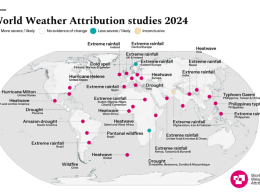More than a dozen nations convened in Oslo this week for informal discussions aimed at unblocking stalled negotiations on a global treaty to tackle plastic pollution — a mounting environmental crisis with serious public health implications, scientists warn.
The two-day talks, hosted by Norway, brought together countries and blocs including China, Brazil, Colombia, Egypt, France, Indonesia, Japan and the European Union. Although India, Iraq and Saudi Arabia were also invited, they did not participate.
The Oslo meeting comes ahead of a new round of formal United Nations-backed negotiations scheduled for August in Geneva. Previous talks held in South Korea last year were hindered by opposition from a small group of oil-producing countries — notably Saudi Arabia and Russia — that resisted efforts to impose limits on the production and consumption of plastic.
Diplomatic efforts now hinge on a handful of influential nations, particularly China, Brazil, India and South Africa. China, in particular, plays a pivotal role as home to one of the world’s largest petrochemical industries, though it has expressed growing concern over the health impacts of plastic waste.
“We are working now to find that landing zone — the compromise that can bring an agreement at the Geneva talks,” said Norway’s Climate and Environment Minister Andreas Bjelland Eriksen. “A lot of countries now really want to step up and demonstrate that the multilateral system is actually working.”
The push for a plastics accord comes amid criticism of the global community’s slow progress on environmental issues, following a series of lacklustre outcomes at recent UN summits. Notably, talks aimed at ending plastic pollution, reversing biodiversity loss and halting desertification all fell short of their goals in 2023.
However, optimism has been renewed by a breakthrough last month at the UN Biodiversity Conference in Rome, where over 140 countries pledged to mobilise hundreds of billions of dollars annually to combat nature loss. Norway hopes to replicate elements of that diplomatic strategy by holding informal consultations ahead of the formal negotiations in Geneva.
A prospective global plastic treaty would target the escalating volume of plastic waste entering the planet’s soils and waterways. Plastic does not biodegrade but rather breaks down into microplastics — tiny particles that can infiltrate ecosystems and food chains. Emerging research indicates these particles may pose toxic risks as they accumulate in the human body.
According to the Organisation for Economic Co-operation and Development (OECD), global plastic production is projected to surge by 60% by 2040, reaching an estimated 736 million tonnes annually.





















